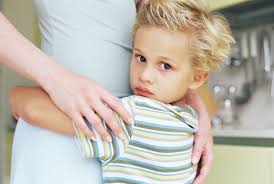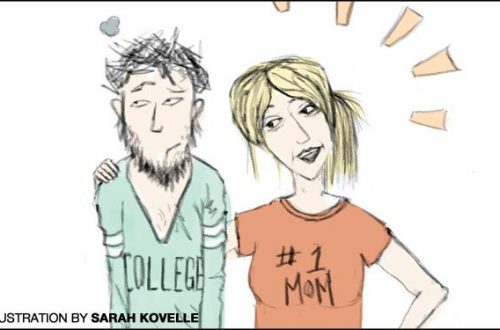
To The Moon And Back-Helping Children of Divorce Cope
TO THE MOON AND BACK
If you were given an opportunity to take a vacation in space would you do it? I imagine most people would be somewhat apprehensive and maybe even fearful. Some would jump at the chance. Others would review the risks and make the decision to travel to the moon after much thought.
But, what if you didn’t have a choice and suddenly someone put you on a rocket-ship headed straight to the moon? It would be hard as an adult to go to the moon. But, can you imagine having to go as a child-alone? You would have to put on the appropriate clothes, adjust to a new atmosphere and figure out how to survive-even breathe. The moon would feel completely different than earth. You wouldn’t know what to expect or what you should do on the moon. Without a parent, depending on your age, survival would be unlikely. But what if one of your parents was with you? 
Then you would feel some relief, but you would miss your parent on earth. Now imagine while on that rocket your parent tells you they are going to stay on the moon-leaving the other parent to live on earth. You will have to travel between the earth and the moon to see both parents. But when you go back to earth and are with that parent, things don’t feel right there either. Everything is different and even earth has changed. The way your earth parent used to do things has changed. Earth doesn’t feel like earth anymore, because the other parent is still on the moon.
Your earth-dwelling parent is trying to do everything they did with the moon-dwelling parent, only now they have to do it all alone. Even though you are a child, you have new responsibilities and pressures placed on you. The luxuries or freedoms you once had may be gone because your earth parent doesn’t have the fuel they once did.
What’s more, each time you take a trip to the moon and back you go through great turbulence as your rocket re-enters the atmosphere. It takes time to adjust to being back on earth- to get your footing. You feel spacey because things are so different. Life on the moon is different than life on earth and it is hard to feel grounded in either place.
When a family falls apart and a husband and wife divorce, the children are essentially put on a rocket-ship headed to a foreign feeling planet-the moon.
In most cases, neither parent wants their child to experience hurt, anxiety or pain. And even though there may be circumstances which necessitate the divorce, a child should be allowed to still see and love both parents.
Typically, one parent is going to be shouldering the friction and loss their child feels as well as the majority of responsibilities.The child may feel safer traveling through this space called divorce with one parent versus another. Difficulty arises when the primary parent has to handle not only all the responsibilities they had before, but also added ones from the absent parent. Exhaustion, pain, grief, and sadness can create a black hole of hurt that sucks the primary parent in–making it hard to pull away from the resistance to some sense of normalcy.
The child may not want to go back to the moon. They may be happy one moment and sad the next.
During this time, it is easy to talk poorly about your former spouse with your child. DON’T DO IT. There can even be a gravitational pull between parents to win their child to their way of thinking. DON’T ENGAGE IN THIS BEHAVIOR EITHER.
The one who will be hurt will be your child. They are already feeling lost. They are trying to juggle two families now and two ways of doing things. They shouldn’t have to choose between the parents they love. No matter what has happened to cause the divorce, they desire a relationship with both their mother and their father. (I realize not all situations are this way—especially in cases of abuse. Those situations are unique and need to be handled differently.)
While your child may despise or hate the pain one parent has caused, it may not be vocalized that way. Allow them to voice their feelings without giving them further information about your former spouse.
Repeat back to your child what they say to you, so they know they are being heard.
For example, “I think what I heard you say is you feel sad because you miss mom/dad.” Or, let them know you hurt with them and you feel sad too.
“I know you are sad. I am too. But I promise it will get better.”
Once they have expressed their feelings, take time to pray with them and hug them.
Above all, remember you as a parent need to be rooted in Christ so that your identity is in Him.
Colossians 2:7 (NIV) says, So then, just as you received Christ Jesus as Lord, continue to live your lives in him, 7 rooted and built up in him, strengthened in the faith as you were taught, and overflowing with thankfulness.
Colossians is so encouraging, because it tells us to continue to live our lives in HIM. No matter what has happened, we are to continue living for Christ, rooted and built up in him.
This is a terribly difficult time for the responsible parent. Do not take it personally when your child wants to the see parent who hasn’t been around. They see and appreciate all you do for them. One day they may even thank you.
Put yourself in their shoes, no matter how big or how small their shoes. Remember that your child is feeling a huge loss. They have lost their sense of security, family unit, and many times their home, financial security and more.
If your child doesn’t know how they feel, then ask them if they had to pick two emotions which ones would best describe their feelings.
For younger children you can give them these words: happy, mad, sad, scared, surprised, and disgusted.
Once they identify their feelings they may be more willing to talk. Above all love them.
And remember Deuteronomy 31:8 (NIV) which says,
8 The Lord himself goes before you and will be with you; he will never leave you nor forsake you. Do not be afraid; do not be discouraged.”
Hang on, it will be a bumpy ride, but as time passes, it will get better and it will get easier.


